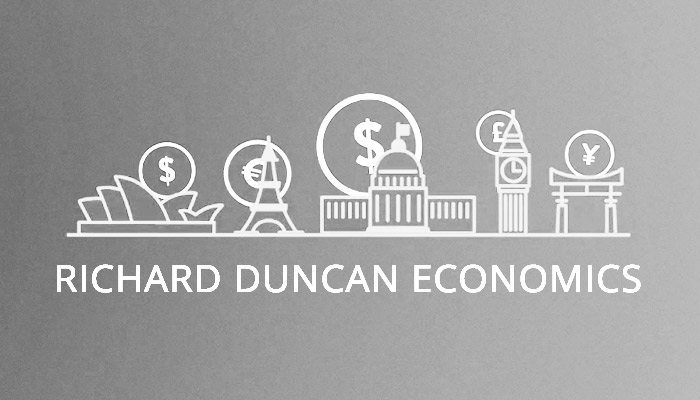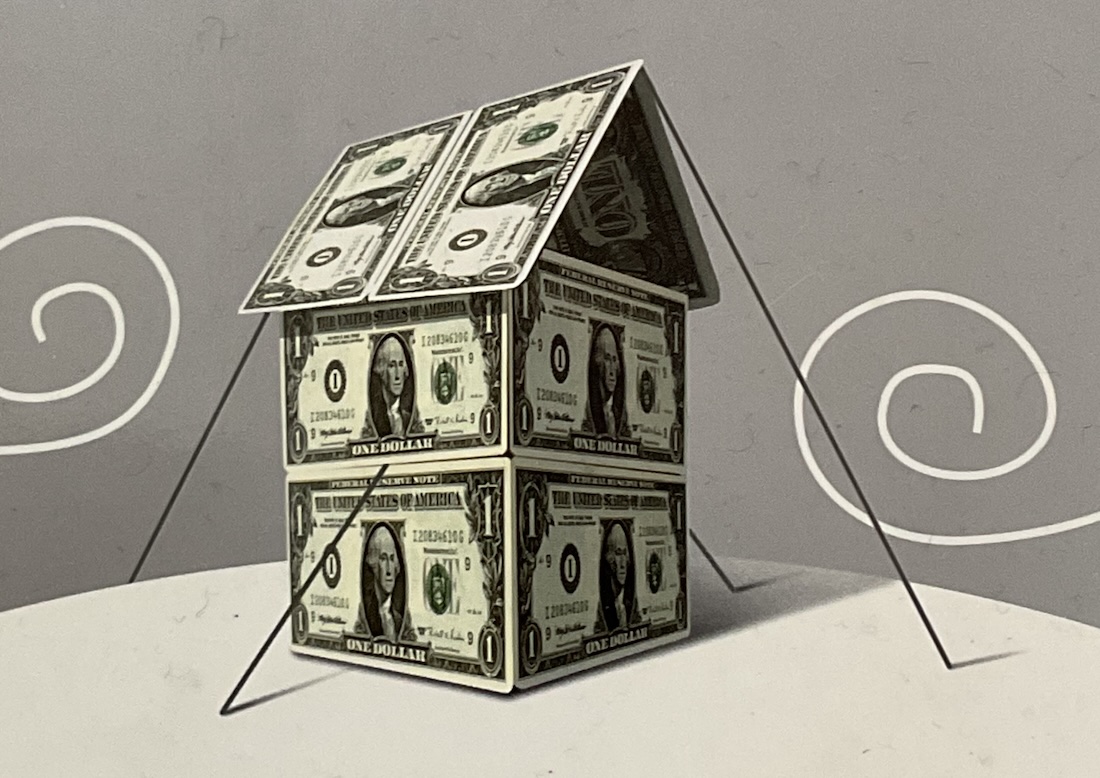A New Economic Paradigm

Posted April 19, 2011
Since the 1980s, a culture of debt has arisen in the United States. That change was the consequence of a misguided trade policy that gave rise to a current account deficit of unprecedented size. Between 1982 and 2008, the United States imported $7.4 trillion more than it exported. It financed the shortfall on credit. That credit transformed the structure of the US economy.
Every country’s balance of payments must balance. Thus, between 1982 and 2008, $7.4 trillion in foreign capital entered the United States to finance that deficit. That amount was considerably more than the entire amount of US government debt held by the public at the end of 2008, $5.8 trillion. As the money flowed in, it created a credit-fuelled economic bubble—just as foreign capital inflows blew Latin America into an economic bubble in the 1970s and the Asian crisis countries into economic bubbles in the 1990s.
In the process, the structure of the US economy changed. The manufacturing sector was decimated when exposed to ultra-low-wage foreign competition, while the service sector came to dominate the economy and employment as credit-driven asset price inflation created the wealth that made many of those services profitable.
Consequently, over less than three decades, as the US trade deficit grew to previously unimaginable levels, the country’s economic growth model became one of credit-financed consumption that depended on ever-increasing amounts of credit each year to sustain it. In 2008, when the private sector could no longer bear the burden of so much debt, that economic paradigm collapsed.
That paradigm of debt-fuelled consumption can never be resuscitated. The US economy is now on government-funded life support that cannot be paid for over the long run. The limited nature of government resources makes it inevitable that a new economic paradigm will emerge over the next five to ten years. The future of the United States—and the rest of the world—will be determined by the form that new paradigm takes.
Note: For additional details, see The Corruption of Capitalism, Chapter 10: “America Doesn’t Work”


When the US dollar collapses and we switch to a global currency, will the world governments allow the USA to clear their debt and start from zero…. or will our debt be transferred to the new currency?
I think Richard is suggesting that hyper inflation will set in for the US dollar and therefore debt will be evapoarated away.
Global Currency? I don’t see that happening anytime soon. To get every country to accept a global currency is next to impossible.
Global Currency. A fascinating thought.
Excellent article. Fixing the problem won’t be easy or swift, especially with a tsunami of entitlement spending about to hit the US.
Hello, Richard:
Excellent analysis. Your commentary is right on target, and I plan to add some of your books to my home library.
Best, Kevin P. Haag
so…what are the (best) ways to protect against/profit in the case of an upcoming upheaval? – cash will buy less every day so I assume tangible assets (real-estate, precious metals, bluechips?, ??) that will maintain demain with whatever is the new currency is the way to go? The issue is that these are are nearing all-time highs which I assume means that the demand is growing – which I interpret as informed people already hedging…
Thoughts and perspective welcome.
Many things are at all time high, but if the Fed keeps printing money to keep up the bubble and this unbalanced economy (which is most probably the case), then they will set even new highs (at different growth rates though).
As I anticipate major upheavals in the coming years, I would allocate capital the following way:
25% precious metals (80% gold and 20% silver, maybe some platinum or palladium too) – some in physical form in my own possession and some in allocated form in a vault somewhere. This is to have some sound base and they are quite liquid too.
25% real estate: this could include residential property and farmland (a lot depends on the price of course and the location)
With these two (precious metals and real estate), we would have some safe cushion to fall back on even if the currency/economy collapses
20% cash for living expenses, and to take advantage of any sudden buying opportunities along the way.
30%: Speculation. Why not try to increase wealth if we cannot stop this craziness anyway and if we think we have a good understanding of how the inflation process works. Of course, this is the hardest part, and everybody has to do his own research (and not worry about losing). My bet would be on agri commodities, energy (oil and gas), precious metal mining stocks in safe countries. Maybe luxury sector too, as the income gap will widen. Healthcare?? It would be nice to re-examine what worked best in the 1970s for investments.
Comments are welcome. Let’s discuss what is the best way to protect ourselves (and our wealth) and to make some (real) money too.
Richard, your thoughts would also be extremely valuable. Especially now when it is not yet clear when QE3 will start. A small delay in it and the resulting drop in prices could pose excellent buying opportunities.
Richard,
Keen to her your thoughts on the UK’s policy of fiscal restraint – in Corruption of Capitalism you suggest that trillions should be invested to get the US back into the real economy, how can we stop that being inflationary?
Thanks
Duncan